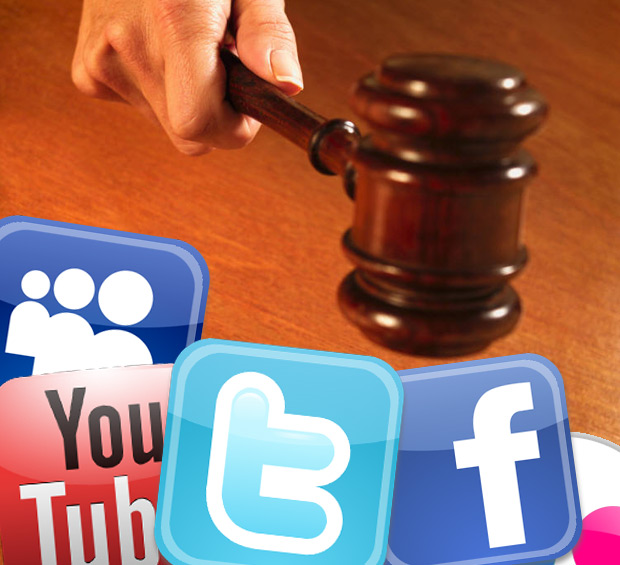Social media content is being incorporated into trials across the world, and the legal system is still trying to determine how to best allow this, what’s legally able to be used as evidence, and other aspects of how social media is/can be used in court. As this is being hashed out, social media continues to impact the legal system in a variety of ways. The following two examples were recently noted in the news; one shows how a judge can be impacted by social media and the other shows how social media content can result in a mistrial.
Mistrial due to social media content
Last month, the Monitor published a story about a high profile, gang related trial that ended up being declared a mistrial. Why? A witness that had testified for over two hours and was given explicit instructions to not talk about the case did exactly that on social media only hours after testifying. According to the article, the witness admitted to posting articles and comments about her testimony after taking the stand, and a social media post she published stated that she had ingested Spice (synthetic marijuana) prior to testifying in court. Despite the witness claiming that she did not post this statement, it was allowed to be used in court and was considered in the decision to declare a mistrial.
This case is interesting in that it shows that what a witness or even juror posts can be used as evidence in court. However, there are methods that need to be used to appropriate capture and memorialize the content that a lawyer wishes to use as evidence – the “rules” are still murky but are being developed quickly across the country.
It also highlights the importance of monitoring social media during a trial, both for general content and for individuals involved in the trial, whether it is a juror or witness, to ensure that instructions are being followed to avoid situations such as the one above.
Judge are recused from case due to social media content
The Chicago Tribune published an article related to an Indiana case in which three judges have recused themselves, citing a potential conflict of interest from both attempted conversations on social media and phone calls, as well as visibility of social media content that may have been seen regarding the upcoming trial. One of the recused judges made a statement about her decision:
“Prior to the transfer of the above causes of action from Judge Julie Cantrell, this court overheard several attorneys discussing these cases in detail and saw several social media posts that create a conflict of interest.”
Another judge stated:
“Numerous uninvited ex-parte communications have occurred or been attempted through social media and telephone calls to influence this court,” Cantrell wrote in her order to transfer the case, saying the transfer was necessary to avoid the appearance of impropriety.”
The case has been assigned to a fourth judge, and as of this writing it is unclear whether that judge will hear the case.
This illustrates how social media can impact high profile cases, both from the stance of a judge being able to hear the case without possible conflict of interest as well as from the perspective of finding an impartial jury. Social media makes it much more difficult to find local residents who are completely impartial and have not read or heard about some high profile cases.




